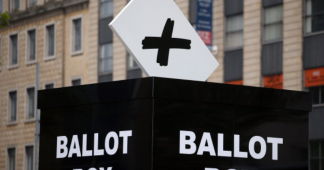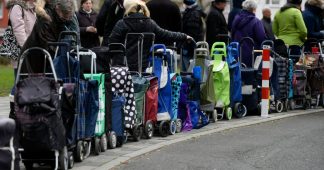In an exclusive global series, the Guardian lays bare the tech revolution transforming the welfare system worldwide – while penalising the most vulnerable
by Ed Pilkington
14 Oct 2019
All around the world, from small-town Illinois in the US to Rochdale in England, from Perth, Australia, to Dumka in northern India, a revolution is under way in how governments treat the poor.
You can’t see it happening, and may have heard nothing about it. It’s being planned by engineers and coders behind closed doors, in secure government locations far from public view.
Only mathematicians and computer scientists fully understand the sea change, powered as it is by artificial intelligence (AI), predictive algorithms, risk modeling and biometrics. But if you are one of the millions of vulnerable people at the receiving end of the radical reshaping of welfare benefits, you know it is real and that its consequences can be serious – even deadly.
The Guardian has spent the past three months investigating how billions are being poured into AI innovations that are explosively recasting how low-income people interact with the state. Together, our reporters in the US, Britain, India and Australia have explored what amounts to the birth of the digital welfare state.
Their dispatches reveal how unemployment benefits, child support, housing and food subsidies and much more are being scrambled online. Vast sums are being spent by governments across the industrialized and developing worlds on automating poverty and in the process, turning the needs of vulnerable citizens into numbers, replacing the judgment of human caseworkers with the cold, bloodless decision-making of machines.
At its most forbidding, Guardian reporters paint a picture of a 21st-century Dickensian dystopia that is taking shape with breakneck speed. The American political scientist Virginia Eubanks has a phrase for it: “The digital poorhouse.”
Listen to governments, and you will hear big promises about how new technologies will transform poverty as a noble and benign enterprise. They will speed up benefits payments, increase efficiency and transparency, reduce waste, save money for taxpayers, eradicate human fallibility and prejudice, and ensure that limited resources reach those most in need. But so often, those pledges have fallen flat.
Read more at https://www.theguardian.com/technology/2019/oct/14/automating-poverty-algorithms-punish-poor











